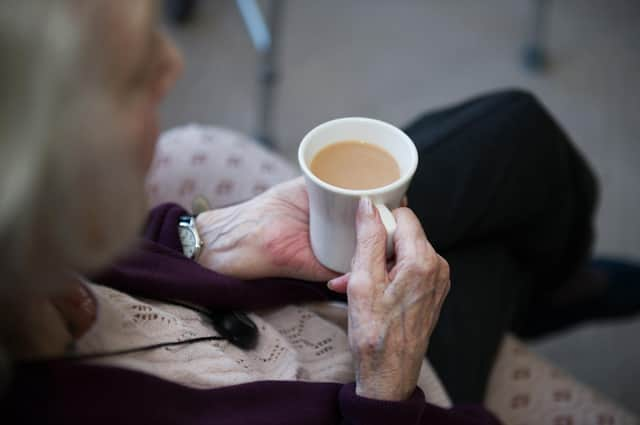Scotland's care sector must be fixed. We have the powers if the political will exists – Brian Wilson


Something must be done, everyone agrees, about care homes. Yet until now the subject was filed under “non-urgent”.
There are two required levels of inquiry. The first is immediate, home-grown and involves failure to test staff or patients over critical months after the implications were all too apparent.
Advertisement
Hide AdAdvertisement
Hide AdIt is now in the script that the imperative for clearing hospitals derived from images of the “tsunami” that hit Lombardy. But why were no alarm bells sounded by even grimmer scenes from care homes in Spain, confirming the sector’s vulnerability?
Though the outcomes in Scotland are distressing, this is not an issue for us or the UK alone. In Sweden, the Health Minister has acknowledged a “society-wide failure” and many governments will face hard, ethical questions.
So the second level of inquiry must recognise that one of the great challenges of our century cannot be evaded – or can it? The population will continue to age with the need for a caring response correspondingly greater.
Throughout the UK, the defining legislation was the Community Care Act of 1990, turning local authorities into brokers of care rather than providers. This was the spiv economy heyday with buses, utilities. care homes, you name it, subject to the same ideology – privatise first and ask questions afterwards.
The new industry boomed but never fully recovered from its early reputation – profit-driven, low-paid and sometimes cruelly unfit for purpose. A sector that should have been designed to NHS standards was left to the mercies of the market.
It would be foolish to pretend nothing has changed. Regulation is far tighter and many privately owned homes are excellent. But fundamental weaknesses in the system have never entirely gone away and have now been cruelly exposed by the pandemic.
In 1998, the Labour government confirmed: “Our third way moves the focus away from who provides the care and places it firmly on the quality of services experienced”. That remains the prevailing model in Scotland as elsewhere. So how can it be improved?
First and foremost, status and pay of those who work in the sector must be placed on a par with NHS counterparts. This is on grounds of fairness and also necessity. As the age balance switches, it will simply not be possible to retain staff unless they are properly paid.
Advertisement
Hide AdAdvertisement
Hide AdTake one piece of anecdotal evidence. On Skye last year, I was told the Airbnb boom – with every room in lucrative demand – was making recruitment to minimum wage jobs on the island more difficult.
I have no idea whether that had any bearing on what has occurred on Skye. But it does confirm a wider truth – the fragility of a sector which depends mainly on women undertaking hard, challenging work for very modest remuneration. That is unsustainable.
Secondly, we need far greater variety of provision. The emphasis on keeping elderly people in their own homes has been marginalised as cuts to council budgets took their toll on home help and other services. Sheltered housing also merits a new impetus.
In the Western Isles, there was a great concept of local care units established in the 1970s. It kept folk in their own communities instead of being shipped off to a care home. It created local employment and allowed residents to interact with family and young and old around them.
At the time, it attracted international interest as a model with application in both rural and urban settings. But relentless pressures of centralisation and funding cuts took their toll. The last of these lovely units closed this year. Progress?
In 2014, the Scottish Government and council-body Cosla commissioned a report called The Future of Residential Care for Elderly People in Scotland. It made 34 recommendations of which only three have been acted upon. But there is plenty groundwork to build on.
This is a devolved policy area in which Scotland has the opportunity to be innovative and different, just as it was in many areas of social policy in the past. The certainty is it will not be done on the cheap and without political will, it will not be done at all.
A message from the Editor:
Thank you for reading this article on our website. While I have your attention, I also have an important request to make of you.
Advertisement
Hide AdAdvertisement
Hide AdWith the coronavirus lockdown having a major impact on many of our advertisers - and consequently the revenue we receive - we are more reliant than ever on you taking out a digital subscription.
Subscribe to scotsman.com and enjoy unlimited access to Scottish news and information online and on our app. With a digital subscription, you can read more than 5 articles, see fewer ads, enjoy faster load times, and get access to exclusive newsletters and content. Visit www.scotsman.com/subscriptions now to sign up.
Our journalism costs money and we rely on advertising, print and digital revenues to help to support them. By supporting us, we are able to support you in providing trusted, fact-checked content for this website.
Joy Yates
Editorial Director
Comments
Want to join the conversation? Please or to comment on this article.